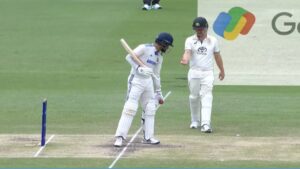Granting EWS quota to upper castes mockery of reservation: DMK to SC | India News – Times of India

NEW DELHI: Challenging the validity of the 103rd constitutional amendment granting 10% reservation to economically weaker sections (EWS), Tamil Nadu’s ruling party DMK told the Supreme Court that quota is meant to alleviate social backwardness of people who were socially oppressed and brining upper castes within its ambit on the ground of economic status would be a mockery of reservation.
In a written submission filed in the apex court by DMK organising secretary R S Bharati, the party said reservations are constitutionally valid only when made to achieve social equality and are not constitutionally valid when made on economic factors.
“Reservations have been upheld by this Hon’ble court only on the ground that it is necessary to offset centuries of oppression and social ostracisation. Reservations are affirmative actions to narrow the social gap. Granting reservations to ‘upper castes’, irrespective of their present economic status, is a mockery of the concept of reservations,” it said.
It submitted that the apex court in the Indira Sawhney case had held that reservation for backward class seeks to achieve the social purpose of sharing in services which had been monopolised by few of the forward classes. “Such affirmative actions have been upheld as the social and educational difference between the two classes furnished a reasonable basis for classification. Same cannot be said for rich and poor. Indigence cannot be a rational basis for classification for public employment. Therefore, the present amendments fall foul of the ratio in Indira Sawhney,” it said.
A batch of petitions have been filed in the apex court against the EWS quota and a five-judge constitution bench headed by Chief Justice U U Lalit will start hearing the case from September 13.
Tamil Nadu has been at the forefront of affirmative action to alleviate social backwardness and it is the first state where the quantum of reservation breached the 50% upper ceiling.
Contending that economic backwardness could not be a ground to grant quota in jobs and educational institutions, the DMK said, “Reservations are constitutionally valid only when made to achieve social equality and are not constitutionally valid when made on economic factors as per the judgements of this court. It is well settled that reservation cannot be a poverty alleviation scheme. Reservation is meant to remedy the handicap of prior discrimination impeding the access of classes of people to public administration/education. It is a remedy or a cure for the ill effects of historical discrimination. What qualifies for reservation is backwardness which is the result of identified past discrimination and which is comparable to that of the SC and the ST.”
“The SCs/STs/BCs suffered systematic and institutional discrimination which handicapped these communities. Jobs and education were reserved for upper castes isolating other backward classes to a destitute state,” the party’s submission said.
In a written submission filed in the apex court by DMK organising secretary R S Bharati, the party said reservations are constitutionally valid only when made to achieve social equality and are not constitutionally valid when made on economic factors.
“Reservations have been upheld by this Hon’ble court only on the ground that it is necessary to offset centuries of oppression and social ostracisation. Reservations are affirmative actions to narrow the social gap. Granting reservations to ‘upper castes’, irrespective of their present economic status, is a mockery of the concept of reservations,” it said.
It submitted that the apex court in the Indira Sawhney case had held that reservation for backward class seeks to achieve the social purpose of sharing in services which had been monopolised by few of the forward classes. “Such affirmative actions have been upheld as the social and educational difference between the two classes furnished a reasonable basis for classification. Same cannot be said for rich and poor. Indigence cannot be a rational basis for classification for public employment. Therefore, the present amendments fall foul of the ratio in Indira Sawhney,” it said.
A batch of petitions have been filed in the apex court against the EWS quota and a five-judge constitution bench headed by Chief Justice U U Lalit will start hearing the case from September 13.
Tamil Nadu has been at the forefront of affirmative action to alleviate social backwardness and it is the first state where the quantum of reservation breached the 50% upper ceiling.
Contending that economic backwardness could not be a ground to grant quota in jobs and educational institutions, the DMK said, “Reservations are constitutionally valid only when made to achieve social equality and are not constitutionally valid when made on economic factors as per the judgements of this court. It is well settled that reservation cannot be a poverty alleviation scheme. Reservation is meant to remedy the handicap of prior discrimination impeding the access of classes of people to public administration/education. It is a remedy or a cure for the ill effects of historical discrimination. What qualifies for reservation is backwardness which is the result of identified past discrimination and which is comparable to that of the SC and the ST.”
“The SCs/STs/BCs suffered systematic and institutional discrimination which handicapped these communities. Jobs and education were reserved for upper castes isolating other backward classes to a destitute state,” the party’s submission said.








